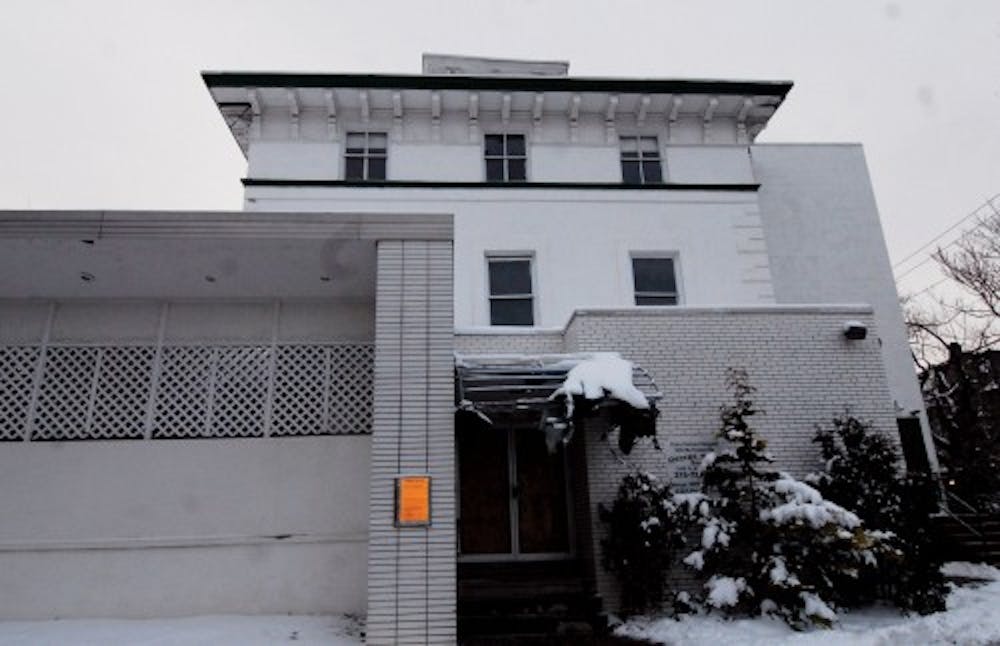Penn's plan to build an apartment complex at 40th and Pine streets is one step closer to becoming a reality, but there is still much opposition to overcome.
On Tuesday, the Architecture Committee of the Philadelphia Historical Commission approved design plans for a five-story, 122-unit apartment complex to replace the historic mansion at 400 S. 40th St.
Before the plan can move forward, it must be approved by the full Historical Commission, which will review the proposal on Oct. 10.
Designed by Penn’s development partner Equinox, the plan reflects an updated version of a proposal that the committee passed on a preliminary basis over two years ago. The revised plans incorporate several of the committee’s suggestions, such as constructing fewer balconies.
In addition to the Architecture Committee, the plan is supported by the Spruce Hill Community Association, the Philadelphia City Planning Commission and Councilwoman Jannie Blackwell, said Ed Datz, Penn's executive director of real estate.
Despite the project’s support, a group of property owners, including the Woodland Terrace Homeowners Association, continues to oppose the plan in two separate legal battles.
In a case headed to the Commonwealth Court, the group is appealing the permit that authorizes Penn to demolish the historic mansion. Meanwhile, the group is also challenging the variances that allow Penn to circumvent several zoning laws during the building’s construction. Although the Court of Common Pleas affirmed the variances in January, the case has been sent to the Zoning Board of Adjustment — which grants the variances — for reconsideration.
Penn bought the property, which used to function as a nursing home, in 2003. But despite years of efforts to redevelop the property, there has been little progress.
The persistent opposition to the project may push developers to turn to a building approach that would lessen the community’s say in future developments. When zoning and neighborhood issues complicate projects, developers tend to seek less community input, said Barry Grossbach, the director of the Spruce Hill Community Association zoning committee. As long as developers work within the zoning code, they can build as "a matter of right."
“The developers [using matter of right] do not have to work with recognized organizations that would otherwise have the ability to weigh in on projects happening in their neighborhood,” Grossbach said.
By pushing developers to use this approach, the ongoing opposition to the project could limit the community’s voice in future developments. But regardless of this repercussion, the reality is “that at the end of the day, community members always have the legal right to put their opinion forward,” said Ryan Spak, who heads a University City District project that restores old homes.



